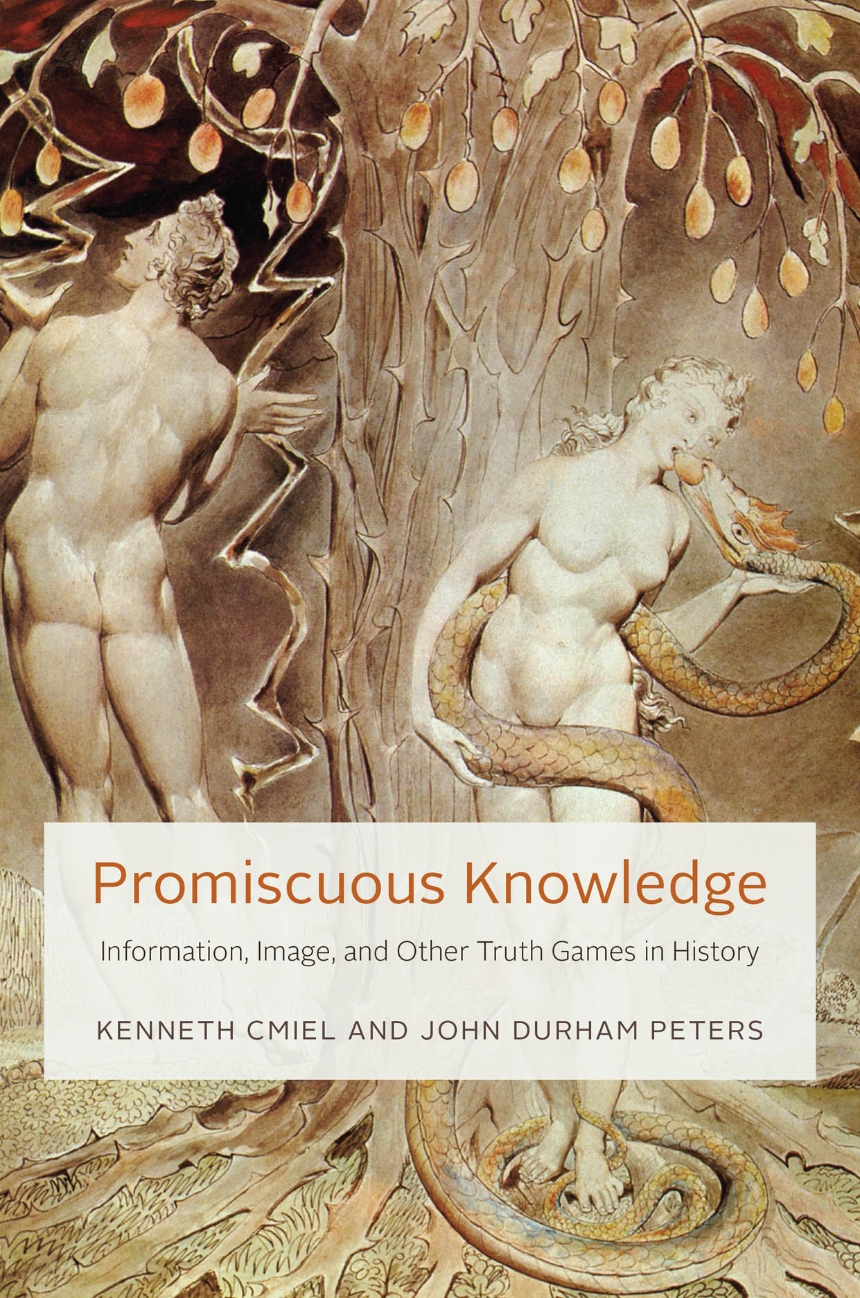Promiscuous Knowledge
Information, Image, and Other Truth Games in History
9780226611853
9780226670669
Promiscuous Knowledge
Information, Image, and Other Truth Games in History
Sergey Brin, a cofounder of Google, once compared the perfect search engine to “the mind of God.” As the modern face of promiscuous knowledge, however, Google’s divine omniscience traffics in news, maps, weather, and porn indifferently. This book, begun by the late Kenneth Cmiel and completed by his close friend John Durham Peters, provides a genealogy of the information age from its early origins up to the reign of Google. It examines how we think about fact, image, and knowledge, centering on the different ways that claims of truth are complicated when they pass to a larger public. To explore these ideas, Cmiel and Peters focus on three main periods—the late nineteenth century, 1925 to 1945, and 1975 to 2000, with constant reference to the present. Cmiel’s original text examines the growing gulf between politics and aesthetics in postmodern architecture, the distancing of images from everyday life in magical realist cinema, the waning support for national betterment through taxation, and the inability of a single presentational strategy to contain the social whole. Peters brings Cmiel’s study into the present moment, providing the backstory to current controversies about the slipperiness of facts in a digital age. A hybrid work from two innovative thinkers, Promiscuous Knowledge enlightens our understanding of the internet and the profuse visual culture of our time.
336 pages | 28 halftones, 2 line drawings, 2 tables | 6 x 9 | © 2020
Art: Photography
Culture Studies:
History: American History, History of Ideas
Reviews
Table of Contents
Preface
Introduction
1. Warning Horatio
2. Victorian Culture and the Diffusion of Learning
3. The Culture of Happy Summary, 1920–45
4. The Age of the World Picture, 1925–45
5. Delirious Images, 1975–2000
6. Promiscuous Knowledge, 1975–2000
Postscript: The Promiscuous Knowledge of Ken Cmiel
Acknowledgments
Notes
Index
Introduction
1. Warning Horatio
2. Victorian Culture and the Diffusion of Learning
3. The Culture of Happy Summary, 1920–45
4. The Age of the World Picture, 1925–45
5. Delirious Images, 1975–2000
6. Promiscuous Knowledge, 1975–2000
Postscript: The Promiscuous Knowledge of Ken Cmiel
Acknowledgments
Notes
Index
